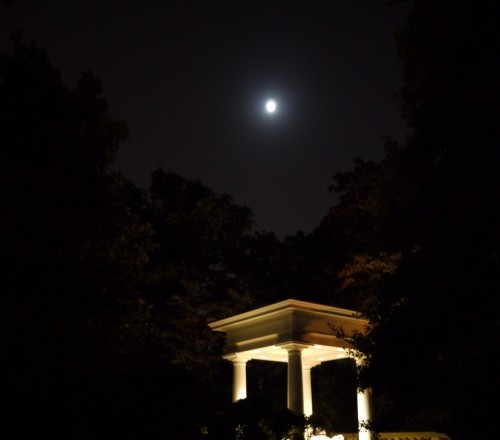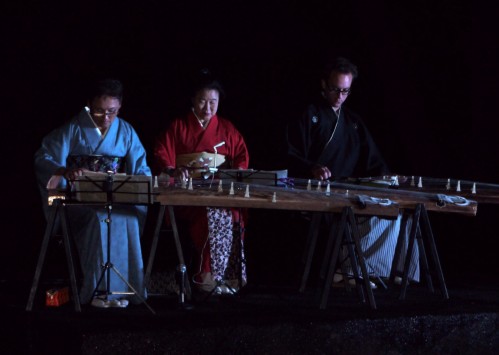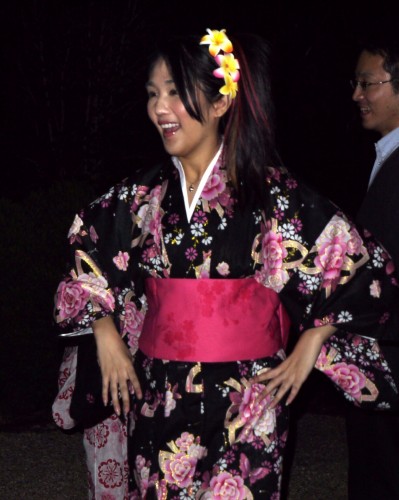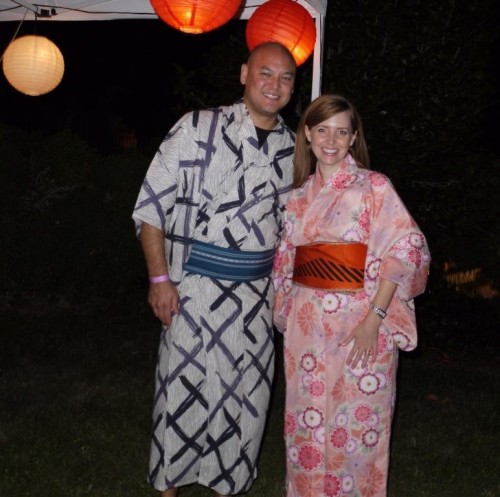The Japanese traditionally enjoy Otsukimi (moon-viewing) on the night of the full moon in autumn. Centuries ago, Otsukimi was introduced to Japan from China, though as it spread throughout the land it was modified to include native Japanese products. The Japanese typically make offerings to the moon of autumn fruits and vegetables, odango (rice dumplings) and susuki (Japanese pampas grass) to give thanks for the year’s harvest.
Approximately 125 people attended this year’s event, hosted by the Japan-America Society of Washington, DC and the Textile Museum earlier this month. Perfectly clear skies, comfortably cool temperatures, and an atmosphere of serene enjoyment were to be had in the Textile Museum’s lovely moonlit garden. Contributing to the ambience were calming traditional Japanese tunes of koto (Japanese stringed musical instruments), including an homage to the “round, round moon.”
Many families laid out their picnic blankets, as child-friendly activities included origami, games and yukata dressing (“yukata” is a cotton kimono worn in the summertime). In addition to delicious obento (Japanese lunch boxes), the event’s activities also included:
– a traditional Japanese tea ceremony
– Bon Odori (traditional Japanese dance)
– Sake tasting, including 4 varieties of rice wine, plus plum wine
– Writing Haiku (Japanese short form poetry)
– Mochitsuki (rice pounding) and making of mochi (rice cakes)
Mark Hitsig, Executive Director of Japan-America Society of Washington, DC was justifiably proud of this year’s celebration. “This is just the second or third time we have had the weather and the moon cooperate in my many years being involved with hosting the event.” This year’s Otsukimi was the second time it was held at the Textile Museum, which seemed a perfect setting with its secluded garden providing the requisite greenery to frame the rising moon. “It’s become just the perfect size for what we would like to do at these kind of events — not too big, not too small,” said Hitsig.
Annual Otsukimi celebrations are becoming more prevalent in the US, hosted by local Japanese cultural societies. Other notable celebration locations include Phoenix, Oakland, Dallas, Philadelphia, and Portland, OR.




Pingback: SYMHM: Halloweekend Roundup | Borderstan